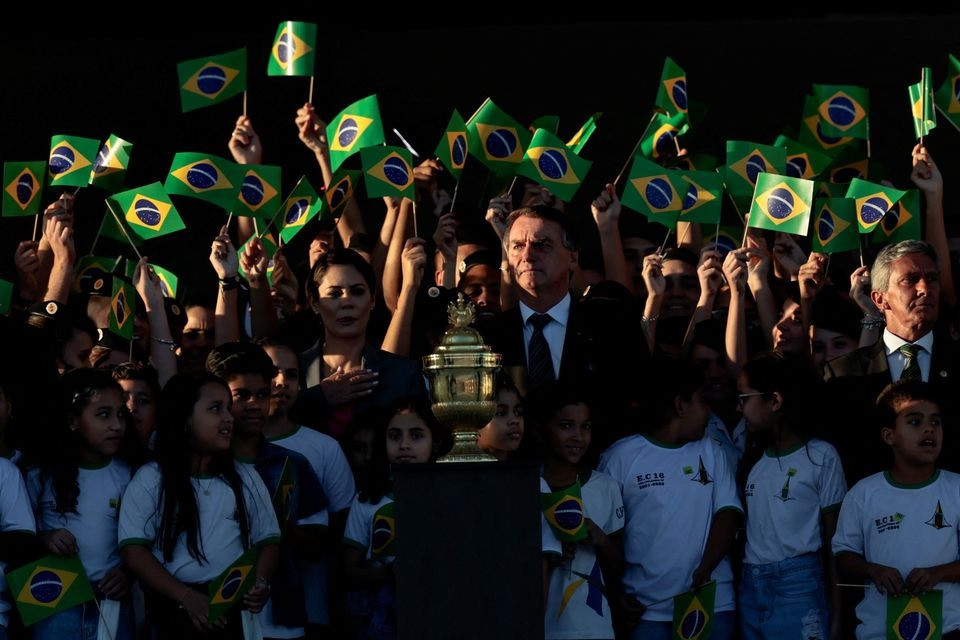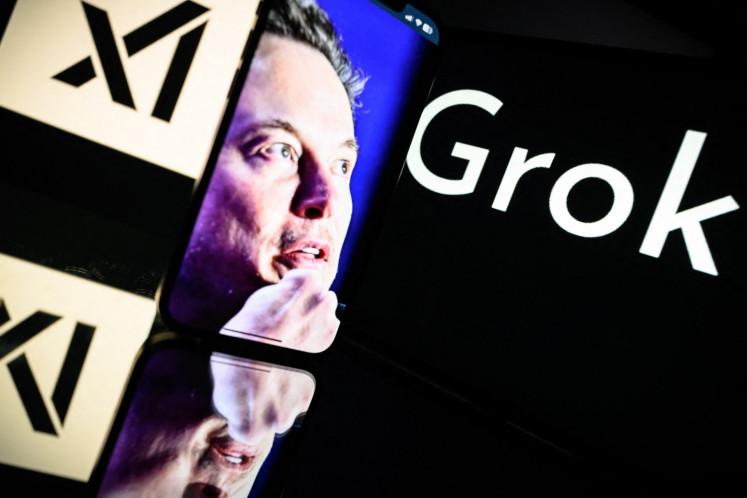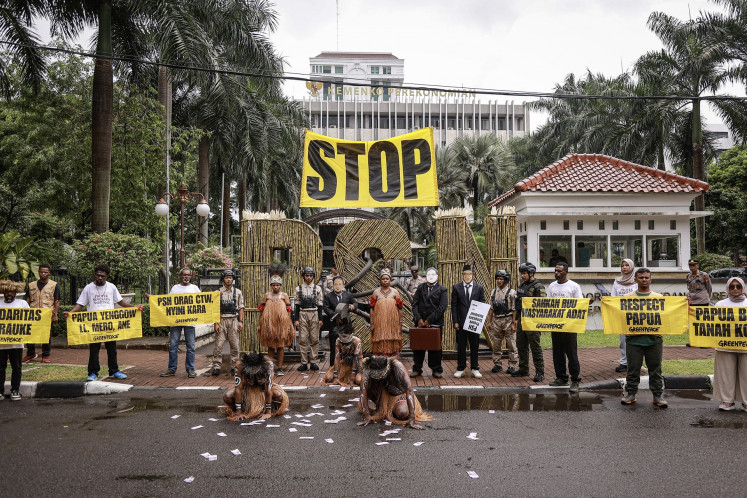Popular Reads
Top Results
Can't find what you're looking for?
View all search resultsPopular Reads
Top Results
Can't find what you're looking for?
View all search resultsBrazil: 200 years of independence
A comprehensive legal framework for environmental protection has helped Brazil keep more than 60 percent of its original forests.
Change text size
Gift Premium Articles
to Anyone
 Brazil’s President Jair Bolsonaro takes part in a welcome ceremony for the urn with the heart of Portuguese monarch Dom Pedro I, who declared Brazil's independence from Portugal 200 years ago and was named Emperor of Brazil, at the Planalto Palace, in Brasilia, Aug. 23, 2022. (Reuters/Ueslei Marcelino)
Brazil’s President Jair Bolsonaro takes part in a welcome ceremony for the urn with the heart of Portuguese monarch Dom Pedro I, who declared Brazil's independence from Portugal 200 years ago and was named Emperor of Brazil, at the Planalto Palace, in Brasilia, Aug. 23, 2022. (Reuters/Ueslei Marcelino)
T
oday, Sept. 7, Brazil celebrates 200 years of independence. Amid the festivities and ceremonies taking place across the nation to commemorate this historic moment, I would like to share with our Indonesian friends some reflections on our achievements as a country and the challenges that remain ahead.
Like Indonesia, Brazil gained independence after centuries of colonial administration by a European power – Portugal, in our case.
In the 19th century world order, Brazil started its path toward development, trying to find its place among the growing family of nations of the time. Two hundred years later, Brazil is among the largest countries in the world in terms of territory (5th), population (6th) and gross domestic product (10th in 2021), enjoying peaceful relations across almost 17,000 kilometers of borders with 10 neighboring countries.
In 2022, Brazil is an agricultural and energy powerhouse. As the third-largest agricultural exporter (after the United States and the European Union), Brazil is the world's largest supplier of soybeans, sugar, orange juice and beef, and is the second-largest exporter of corn and poultry.
The Brazilian agribusiness sector is firmly committed to sustainable development and environmentally friendly practices, particularly in regard to tackling deforestation associated with agricultural production. The animal protein export sector, for example, managed to increase production by 139 percent in the last two decades, while, in the same period, reducing by 15 percent the total area used for grazing.
A comprehensive legal framework for environmental protection has also helped Brazil keep more than 60 percent of its original forests. This has been done without overlooking the obligation to provide jobs and to increase the standards of living of our population, including in the Amazon biome, which occupies 4,196,943 sq km (49.29 percent of our territory) – an area larger than that of all member countries of the European Union put together.
Brazil is also a leader in clean energy production. Renewables meet almost 45 percent of primary energy demand, and hydropower plants account for around 80 percent of national electricity generation. Those numbers led the International Energy Agency to classify Brazil’s energy sector as one of the least carbon-intensive in the world. In 2021, for example, each megawatt/hour of electricity produced in Brazil generated 118.5 kilograms of carbon dioxide equivalent in emissions, which represents only 37 percent of the emissions per MWh produced in the European Union, 27 percent in the United States and 15 percent in China.
In its efforts to expand trade relations, especially in Southeast Asia, Brazil considers Indonesia a key partner and top priority for negotiations within the framework of MERCOSUR. We are also keen on developing new paths for mutually beneficial cooperation, such as in animal protein production, biofuels and defense equipment. Furthermore, both our countries are committed to tackling climate change and achieving net-zero carbon emissions by 2060.
In an international environment that is facing pressures toward polarization and unilateralism, Brazil remains fully committed to the peaceful settlement of disputes and to multilateralism. Brazil supports Indonesia’s presidency of the G20 and seeks to promote the dialogue among all countries. We stand true to our responsibilities as a founding member of the United Nations and, currently, as a non-permanent member of the UN Security Council.
As a member of Brazil, Russia, India, China and South Africa (BRICS) and holding a future Group of 20 presidency in 2024, we foresee an important window of opportunity in upcoming years for increased cooperation, not only with Indonesia, but also with ASEAN, especially in light of Brazil’s recent admission to the status of sectoral dialogue partner of the bloc.
As two of the largest developing countries, facing similar challenges, Brazil and Indonesia have a lot to gain from deeper and more dynamic ties.
While celebrating our 200th anniversary, we look ahead with optimism to the future of our bilateral relationship, firmly anchoring our expectations in the great potential yet untapped in our nations. Let us celebrate our history with our eyes set on the future.
***
The writer is the Brazilian ambassador to Indonesia.










